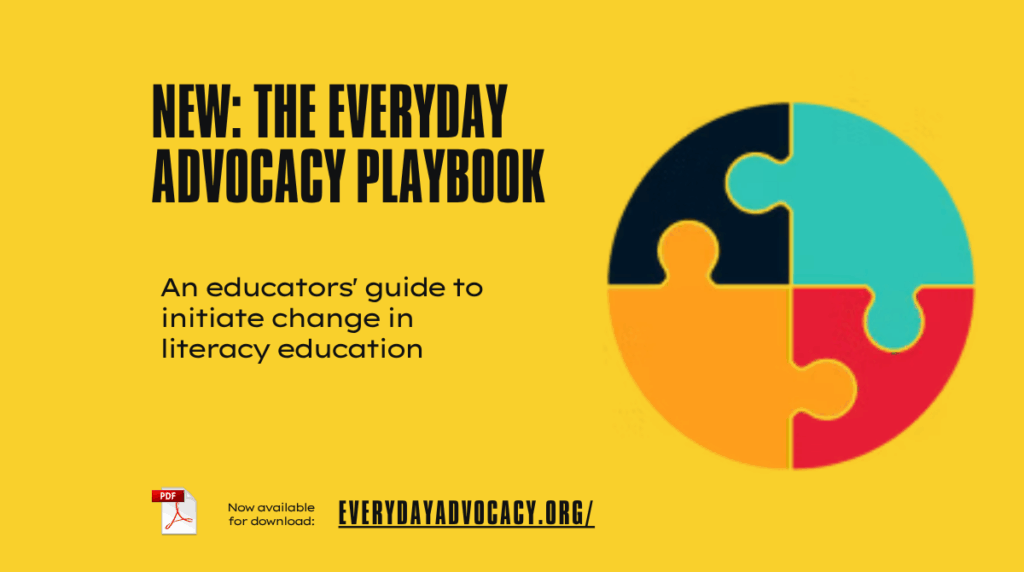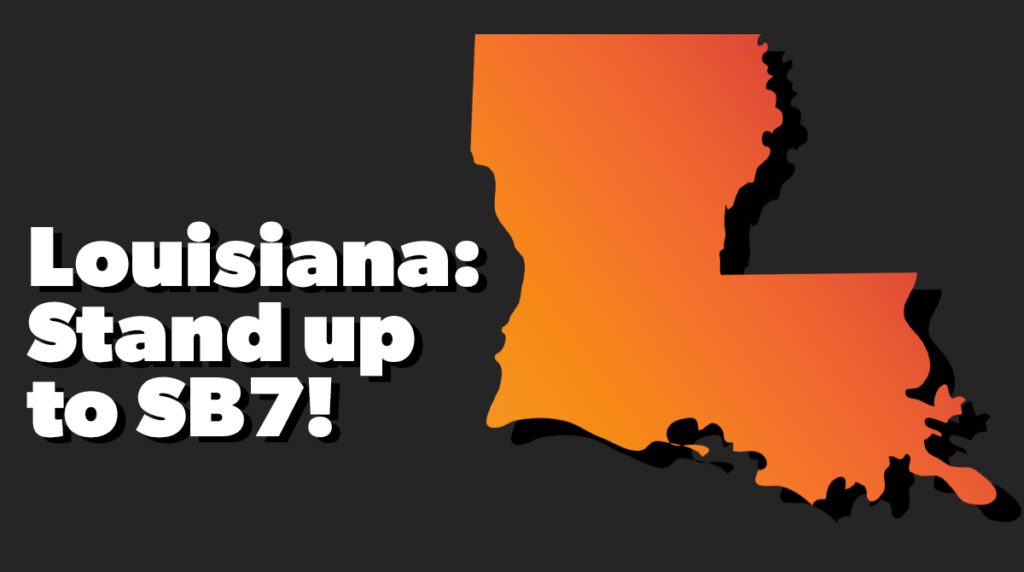This blog post is by Cathy Fleischer and Sarah Hochstetler with Everyday Advocacy, a Unite Against Book Bans partner.
The Importance of Educator Voices in Educational Decision-Making
At Everyday Advocacy, we know what it’s like to be a teacher and to hear outsiders to the world of education speak with great authority about what should be happening in our classrooms, schools, and libraries. We know what it’s like to feel as if our expertise is too often ignored in conversations about what counts as curriculum, assessment, and pedagogy. We know that educator voices are consistently (and sometimes intentionally) excluded from too much decision-making about schools, schooling, and—increasingly—about the books we teach and make available to our students. And we know that this exclusion is not in the best interests of the learners we serve.
Introducing Everyday Advocacy
Everyday Advocacy (EA) is something teachers, librarians, and community members can do in their local settings to reset the story of education. It includes day-to-day actions you can take to change the public narrative surrounding schools and books. We think of Everyday Advocacy as small “a” as opposed to capital “A” advocacy: something teachers can do as a part of their regular teaching lives.
Over the past decade, we’ve offered workshops, institutes, and webinars to introduce teachers to Everyday Advocacy. We created a website and a YouTube channel filled with teacher and author stories. And, most recently, we’ve developed an Everyday Advocacy Playbook — a hands-on guide designed specifically for educators who are ready to grow in their roles as Everyday Advocates.
The Playbook: Your Guide to Making an Impact
The Playbook leads educators through a step-by-step process to build their advocacy practice in ways that are smart, safe, savvy, and sustainable. Grounded in guiding principles and centered on three core ideas that underpin meaningful advocacy, it blends theory and practice in a way that’s both accessible and actionable.
Inside the Playbook, you’ll find:
- An introduction to Everyday Advocacy and its framework for initiating change in literacy education.
- Reflection prompts and writing invitations to support strategic thinking rooted in action.
- A pathway for developing advocacy plans that are smart, safe, savvy, and sustainable.
- Mentor texts from teachers engaging in advocacy work within their own classrooms and communities.
- A section that speaks specifically to using EA strategies in opposing book bans.
Whether used in professional learning settings, education classes, or by individual educators or teams of teachers and librarians wanting to initiate change, we hope the Playbook becomes a tool you return to again and again.
Get your free download here or purchase a bound copy through National Writing Project in the weeks ahead. Then read our “How to Use this Playbook” guide for suggestions on what to do next.
However you use the Playbook, we hope it helps you raise your voice and change the public narrative that currently surrounds the world of teaching and books. Together, we can make change happen.



